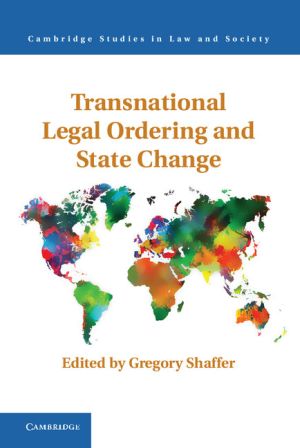
This book brings together seven leading law and society scholars who apply an empirically grounded approach to the study of transnational legal ordering and its effects within countries. The book sets forth five dimensions of national change that are at stake and assesses three clusters of factors that determine transnational legal ordering's effects. Five empirical case studies illustrate how transnational legal ordering interacts with national law and institutions in different regulatory areas, covering comparative anti-money laundering, bankruptcy, intellectual property, competition, health, education, and municipal water law and policy in different developing countries. This book breaks new ground for our understanding of the extent and limits of transnational legal ordering in today's globalized world.